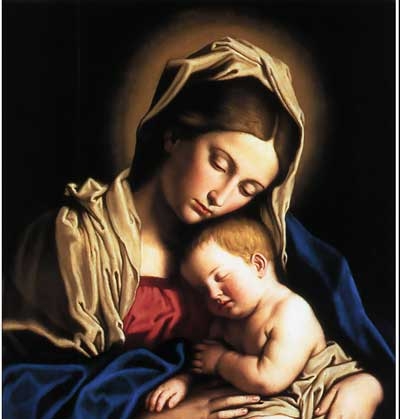 Lectionary: 428
Lectionary: 428Jesus said to his disciples:
"Stay awake!
For you do not know on which day your Lord will come.
Be sure of this: if the master of the house
had known the hour of night when the thief was coming,
he would have stayed awake
and not let his house be broken into.
So too, you also must be prepared,
for at an hour you do not expect, the Son of Man will come.
How fascinating that Jesus compares the coming of the Son of Man to the intrusion of a thief! One is desired of the nations; the other, a common nuisance. In fact we will hear next week, Saint Paul comparing the Lord's coming to a break-in next Tuesday,
For you yourselves know very wellthat the day of the Lord will come like a thief at night.When people are saying, "Peace and security,"then sudden disaster comes upon them,like labor pains upon a pregnant woman,Jesus' admonition to "Stay awake!" is the same as Saint Paul's command to the Thessalonians:
and they will not escape.
Rejoice always. Pray without ceasing. In all circumstances give thanks, for this is the will of God for you in Christ Jesus.We do this by our daily prayer. The Church has boasted for many centuries that the Eucharist is celebrated continually, in every part of the world, as morning, noon and evening sweep around the planet. Monks, nuns and devout Christians celebrate the Liturgy of the Hours without ceasing and in all circumstances. Catholics, Orthodox and Protestants find expressions in every language to honor the Lord.
This constant prayer renders us alert to graceful opportunities and sensitive to diabolical threats. We may not have a spidey sense but we can often smell a rat where others see a deal too good to pass up. Likewise we recognize suffering even of those who cause suffering and so we pray for our enemies. With constant prayer we expect the Thief, the Judge and the Son of Man. Come, Lord Jesus!
















